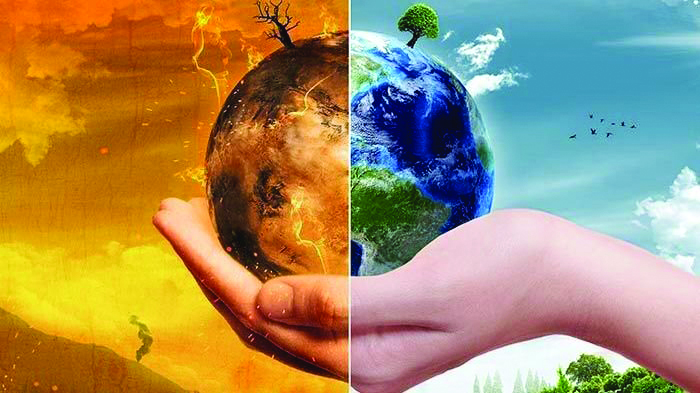On Oct. 19, McGill’s Research and Sustainability Network (RSN) held a virtual debate on the topic of individual versus systemic solutions to the climate crisis. The event featured three McGill professors who research environmental sustainability in their respective fields: Sanjith Gopalakrishnan, assistant professor of operations management in the Desautels Faculty of Management; Dror Etzion, associate professor of strategy and organization, also at Desautels; and Brian Robinson, assistant professor in the Department of Geography.
Shanaya D’sa, U4 Arts and co-president of the RSN, moderated the discussion. D’sa explained that the group’s mission is to help undergraduates get involved in sustainability-related research.
“The Research and Sustainability Network is a student-founded [SSMU] group that aims to bridge the gap between researchers and undergraduates,” D’sa said. “Through speaker series, panel discussions, and socials, we aim to feature a number of sustainability-related topics in an interdisciplinary environment.”
The panellists were first asked about the difference between individual and systemic climate action and how they believe the burden of action against climate change should be distributed. Gopalakrishnan emphasized that, contrary to popular opinion, change can stem from individual-level action, but that an overall mix of institutional and individual action is needed.
“As individuals, it can often appear that we are sort of powerless in front of much larger players to do anything meaningful, but that is not quite true,” Gopalakrishnan said. “There are several ways in which you can make meaningful impacts. Food choice is one of them, [as is] moderating your consumption, rewarding companies or individuals who make right or ethical choices. All of these things are things that individuals can do and individuals must do.”
Etzion took a slightly different stance, arguing that the individual and institutional levels are inherently interconnected. While he cautioned that their interrelation can be for better and worse, Etzion believes it is possible for individual choices to influence positive systemic change.
“[There is] very recent work that says […] the way that you can influence solar panels in your neighbourhood is through contagion,” Dror said. “So, if people see solar panels around them, they are going to put solar panels on their buildings as well. If we create clusters of people having solar, then it is going to influence more and more people to have solar.”
Robinson approached the topic from a totally different angle, stating institutional change is imperative, even if change at the individual level might feel more attainable to some.
“[W]e have little ability to rely on institutions to actually handle some of the forms of change that we need to see, despite that being where the change needs to happen,” Robinson said. “[Institutions] are the ones that shape some of the choices that we have to make as consumers and as individuals. They need to sort of set the bounds on those.”
The speakers noted that financially disadvantaged, racialized, and other marginalized communities often bear the brunt of the climate crisis. Robinson emphasized the importance of listening to these groups rather than talking over them.
“We cannot let our own institutions and policies of ‘good will’ overcome or overwhelm the autonomy and choice of these communities,” Robinson said. “They need to be part of the solution and they need to be part of the discussion.”
At the tail end of the question and answer period, Amelia Murphy, U3 Arts and Science, asked the panellists a simple question: “Are we screwed?”
Gopalakrishnan answered “no,” optimistic about the amount of attention the climate crisis is currently receiving, but that we must remain diligent.
“I do not think we are screwed,” Gopalakrishnan said. “There are lots of people working on solutions. We can be optimistic, but not complacent.”
A previous version of this article incorrectly stated that the debate took place on Sept. 19. In fact, the debate took place on Oct. 19.








